Tesla sales fightback reinvigorates EV sales
Fresh new electric cars and a Tesla sales rebound helped drive a strong uptick in EV sales for May.
Sales figures released by the Federal Chamber of Automotive Industries and EV Council show 10,065 new battery electric vehicles were sold in May, a 10 percent jump on the same month in 2024.
And electric cars accounted for 9.2 percent of the overall market, which dropped 1.6 percent for the month.
Tesla is back
Tesla posted its best Aussie sales since June 2024, with 3897 vehicles sold in the month.
That was enough to make it the ninth best-selling brand in the country (ahead of Volkswagen, Nissan, Subaru, Honda, Chery, MG and many others).
READ MORE: April 2025 EV sales: Tesla sales tank
READ MORE: 2024 EV sales: Deep dive into the market that saw Tesla drop, BYD grow
READ MORE: Used EV sales rose in Australia in 2024 but resale values fell – by a lot!
READ MORE: Electric overload! Every EV coming to Australia in 2025
But was the sales resurgence because controversial Tesla boss Elon Musk has broken up with US president Donald Trump?
Hardly. The sales fightback came off the back of the refreshed Tesla Model Y which posted 3580 sales, one of the mid-sized SUV’s best results ever.
The Model Y sales also made it the second best-selling SUV in the country for May, outdone only by the Toyota RAV4 (4003).
The Model 3 sedan had a much softer month, with just 317 sales.
That meant it was outsold by the rival BYD Seal (355) and the Toyota Camry hybrid (919).
The Model 3 is still slightly ahead of the Camry year to date, with 2583 sales versus 2439.
The big question is whether Tesla can maintain the sales momentum.
There’s clearly plenty of interest in the new Model Y, something that’s likely to keep things bubbling along for at least a few months.
But competition continues to intensify, ramping up the pressure on the EV brand that still accounts for 38 percent of all EV sales.
And competition is likely to ramp up further in July with the introduction of the New Vehicle Efficiency Standard.
The government rules around CO2 emissions encourage car makers to sell zero- and low-emissions vehicles. It’s a huge carrot that will likely see some brands step up their efforts to sell EVs, something that can bank them credits to offset thirstier vehicles, thereby avoiding potentially costly penalties.
The Top Five
There are now 30 brands selling EVs in Australia – almost half the brands on the market – but five of them account for two thirds of EV sales.
Tesla, BYD, Kia, MG and newcomer Geely between them made up 7558 of those 10,065 sales.
Kia’s expanding EV portfolio – including the just arrived EV3 – is making it a serious EV player, with its 1072 electric sales for the month accounting for 15.5 percent of its overall sales.
And BYD continues to perform strongly. Its 1510 EV sales accounted for 47 percent of BYD’s May sales, with the remainder plug-in hybrids (with 1302 sales the Shark 6 ute was the top selling PHEV and the fifth best-selling 4×4 ute).
MG continues to tick along with respectable EV sales, but the recent arrival of the impressive S5 that replaces the underwhelming ZS EV could step things up further.
Luxury still strong
Luxury brands continue to punch above their weight on the EV sales front, too.
BMW, Mercedes-Benz and Volvo also slid into the list of top 10 selling EV brands, while Porsche is eleventh of the 30 brands that sell EVs.
In May, an impressive 26 percent of all Porsches sold were powered only by electricity; a number helped by the new EV-only Macan, which posted 117 sales.
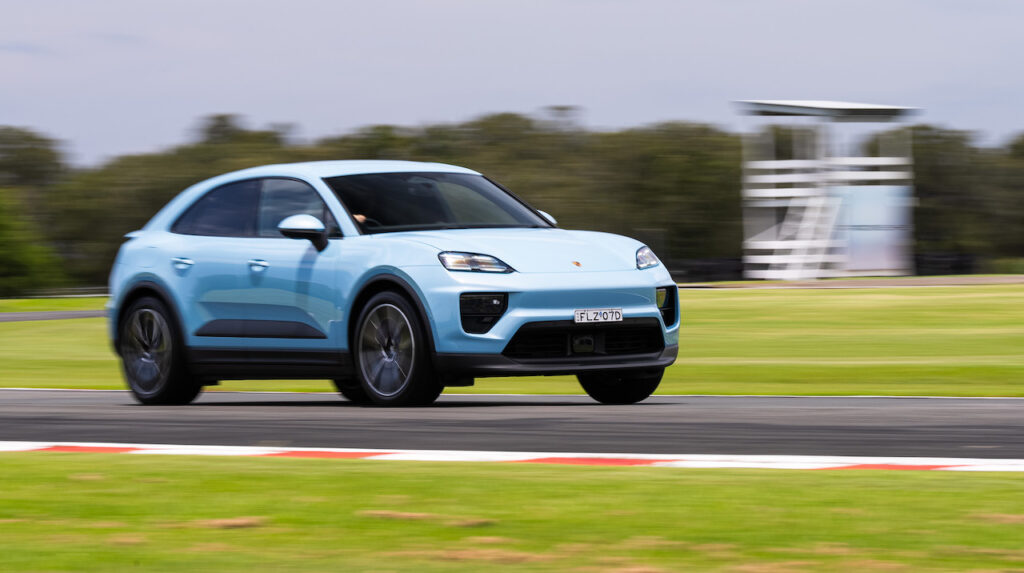
And while Lexus is strong in hybrids, it continues to struggle with EVs, managing just seven sales in May (the brand recently discontinued the UX300e).
Some big brands are EV weak
Toyota is still finding its feet with EVs.
It managed just 72 sales of its bZ4X, the only EV it currently sells.
Of 86 EVs that logged sales in May, the bZ4X was only 27th on the sales charts.
And despite being the third biggest brand overall, Mazda didn’t sell a single EV.
And while it vies for the top sales spot with its Ranger ute, Ford is outsold on the EV front by the likes of Deepal, Zeekr and Audi.
Hybrids still strong
Of course, it’s hybrids that are still the darlings of the low-emissions sales race.
Regular hybrids (those that can’t be recharged externally) edged up 5.5 percent.
And, yes, it was Toyota that dominated with hybrids, although that dominance is being eroded.
Of the 17,089 hybrids sold in May 10,743 of them (63 percent) wore a Toyota badge.
Another 965 wore a Lexus badge.
Plug-in hybrids continue to grow off the back of more convincing new models.
The BYD Shark 6 (1302) was the top selling PHEV, accounting for 43 percent of the 3081 sold.
The BYD Sealion 6 was the second best-selling PHEV, with 413 sales.
Rival GWM is ramping up its PHEV offerings and managed 297 sales (210 H6s and 87 of the newly arrived Cannon Alpha PHEV).
Mitsubishi sold 174 Outlander and Eclipse Cross PHEVs.
EV sales by make/model: May 2025
| Tesla Model Y | 3580 |
| Kia EV5 | 703 |
| Geely EX5 | 511 |
| BYD Sealion 7 | 488 |
| BYD Seal | 355 |
| BYD Dolphin | 345 |
| BYD Atto 3 | 322 |
| MG MG4 | 319 |
| Tesla Model 3 | 317 |
| Kia EV3 | 310 |
| BMW X1 | 207 |
| MG ZS | 136 |
| Polestar 4 | 133 |
| Porsche Macan | 117 |
| BMW X2 | 115 |
| MG S5 | 106 |
| Hyundai Inster | 101 |
| Volvo EX30 | 95 |
| Chery C5/E5 & Omoda 5 | 93 |
| BMW i4 | 92 |
| Mercedes-Benz EQA | 84 |
| Polestar 2 | 82 |
| Cupra Tavascan | 79 |
| GWM Ora | 75 |
| Volkswagen ID.Buzz | 75 |
| Volvo XC40 | 73 |
| Toyota bZ4X | 72 |
| Zeekr X | 68 |
| Deepal S07 | 67 |
| Hyundai Ioniq 5 | 65 |
| MINI Countryman | 60 |
| MINI Aceman | 49 |
| Mercedes-Benz EQB | 49 |
| Audi Q4 e-tron | 44 |
| Subaru Solterra | 43 |
| Ford Mustang Mach-E | 42 |
| Hyundai Kona | 42 |
| BMW X3 | 41 |
| Mini Cooper | 37 |
| Mercedes-Benz EQE | 34 |
| Audi Q6 e-tron | 32 |
| Volvo EX90 | 31 |
| Cupra Born | 30 |
| Porsche Taycan | 29 |
| Polestar 3 | 28 |
| Kia EV6 | 27 |
| BMW iX | 26 |
| Skoda Enyaq | 25 |
| Kia EV9 | 21 |
| Volkswagen ID.Buzz Cargo | 21 |
| BMW i5 | 18 |
| Leapmotor C10 | 15 |
| Jeep Avenger | 15 |
| Kia Niro | 11 |
| Renault Megane E-Tech | 11 |
| Hyundai Ioniq 6 | 10 |
| LDV eDeliver 9 | 10 |
| Fiat 500/Abarth | 9 |
| Mercedes-Benz EQE SUV | 8 |
| MG Cyberster | 7 |
| Mercedes-Benz G-Class | 7 |
| Mercedes-Benz eVito Van | 7 |
| Ford Transit Heavy | 6 |
| Audi Q8 e-tron | 5 |
| LDV eDeliver7 | 5 |
| Lexus RZ | 5 |
| BMW i7 | 4 |
| Mercedes-Benz EQS SUV | 4 |
| Mercedes-Benz eVito Tour | 4 |
| Genesis GV70 | 3 |
| Peugeot E-Expert | 3 |
| Ford Transit Custom | 2 |
| Lexus UX | 2 |
| Peugeot E-Partner | 2 |
| Volkswagen ID.5 | 2 |
| Zeekr 009 | 2 |
| Foton Mobility T5 | 1 |
| LDV eT60 | 1 |
| Lotus Eletre | 1 |
| Maserati Coupe/Conv | 1 |
| Mercedes-Benz Sprinter | 1 |
| Mercedes-Benz EQV | 1 |
| Peugeot e208 | 1 |
| Renault Kangoo | 1 |
| Rolls-Royce Spectre | 1 |
| Volkswagen ID.4 | 1 |
| TOTAL | 10,083 |
EV sales by brand: May 2025
| Tesla | 3897 |
| BYD | 1510 |
| Kia | 1072 |
| MG | 568 |
| Geely | 511 |
| BMW | 503 |
| Polestar | 243 |
| Hyundai | 218 |
| Mercedes-Benz | 199 |
| Volvo | 199 |
| Porsche | 146 |
| Mini | 146 |
| Cupra | 109 |
| Volkswagen | 99 |
| Chery | 93 |
| Audi | 81 |
| GWM | 75 |
| Toyota | 72 |
| Zeekr | 70 |
| Deepal | 67 |
| Ford | 50 |
| Subaru | 43 |
| Skoda | 25 |
| LDV | 16 |
| Leapmotor | 15 |
| Jeep | 15 |
| Renault | 12 |
| Fiat | 9 |
| Lexus | 7 |
| Peugeot | 6 |
| Genesis | 3 |
| Foton | 1 |
| Lotus | 1 |
| Maserati | 1 |
| Rolls-Royce | 1 |
Source: FCAI/VFACTS and EV Council

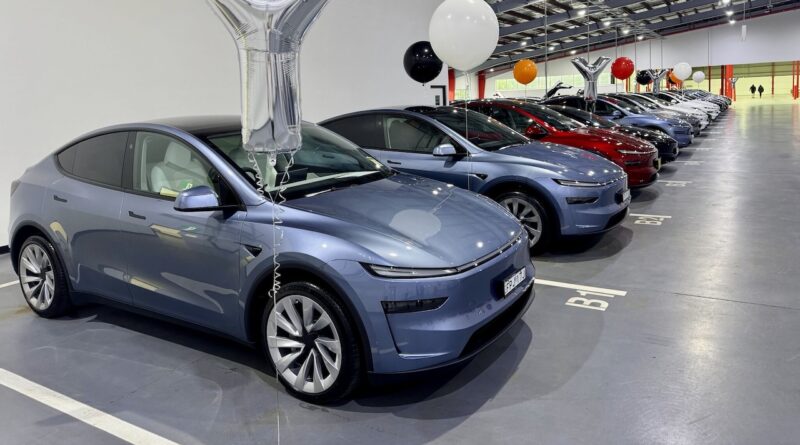
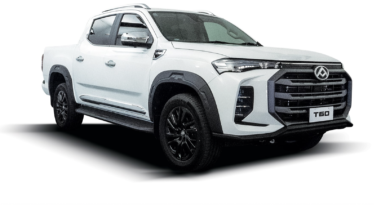
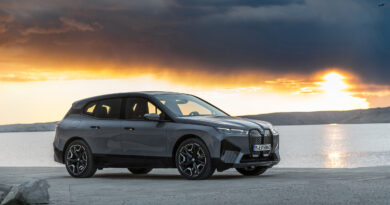
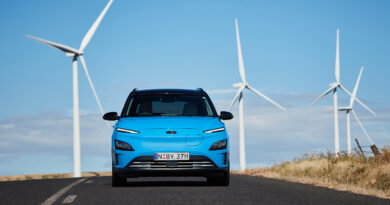
Very informative, thank you.